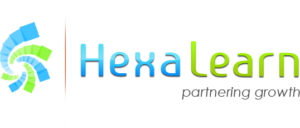eLearning Platforms And The Era Of Personalized Learning
Learning in the coming days will be more individualized, easygoing, and adapted to each learner's specific needs. In this article, we dig into the core of this adaptive future, where personalized learning via eLearning platforms is not only achievable but also applies to the new standards. Personalized learning is not a brand-new idea. Yet, its integration into eLearning strategies has entirely changed the way that education is delivered. Learners are no longer exposed to a one-size-fits-all method. Rather, individuals are met with educational opportunities that adjust to their performances, choices, and pace.
Why Personalized Learning Matters: Aspects To Consider For Your eLearning Platform
Customization in online learning is more than a mere convenience, it is a necessary thing to do. As we know, every learner is unique, with specific learning patterns, interests, and objectives. By acknowledging these individual differences, eLearning platforms can improve interaction, increase retention rates, and lead to better learning outcomes.
1. Importance Of AI And Machine Learning
AI and Machine Learning are crucial to personalized eLearning. These systems analyze a huge quantity of data to understand students' behavior, predict their requirements, and present content that blends with their learning pathways. Also, the adaptive learning environment is always changing, ensuring that the learning experience remains relevant and challenging.
Information is the key to individualized training or learning. eLearning platforms gather details on how students interact with the provided materials, which is then utilized to customize the educational process. With the use of this data-driven method, the material can be changed in real time. This will prevent learners from getting overwhelmed and uninterested in learning those materials.
2. Customized Educational Ways
The ability to design exceptional learning journeys is one of the biggest benefits of personalized eLearning. Learners can choose their path based on interests, career goals, or areas for improvement. This freedom will not only give students more power but also boost the importance and relevance of the learning process.
3. Engaging And Interactive Content
Customizing the curriculum is only one aspect of personalized eLearning, another is the delivery of knowledge in passionate and interesting ways. eLearning platforms are using a variety of technologies, such as gamification and simulations, to enhance the true enjoyment of learning.
4. Comments And Evaluation
One of the main components of individualized learning is ongoing feedback. Instant feedback from eLearning platforms helps students recognize their strengths and areas for development. These days, assessments are more than just exams, they are tools for helping students as they progress through their education.
Additional Considerations And Obstacles To Think About
Personalized learning has many advantages, but there are some challenges as well. Privacy concerns arise when personal information is gathered. Additionally, there is a chance that students will remain secluded in their academic bubbles, which would reduce their exposure to different viewpoints.
The Human Factor
While technology can facilitate customized learning, it cannot take the place of human interaction. Instructors and students provide context and promote a feeling of community, so instructors are essential. The ideal balance of technology and human interaction will determine the direction of eLearning in the future.
The Effect On Traditional Education: Getting Ready For A Future That Adapts
The emergence of personalized eLearning forces established educational structures to reconsider their strategy. For educational institutions to remain updated in the digital age, they have to figure out how to incorporate adaptive learning technologies.
Change is something that educators, learners, and organizations must welcome as we head towards an adaptive future. Being flexible and continuing to learn throughout life is crucial for success in a world that is changing constantly.
Take Away
There are many chances for individualized growth and development in the adaptive future of eLearning. eLearning platforms will get increasingly better at serving the various demands of students all across the world as they develop further. Although the path to individualized learning is difficult, the benefits—better results, increased engagement, and empowered learners—make the work worthwhile.
To incorporate personalized learning into conventional classroom settings, educators must evaluate the unique needs of each student and create individualized lesson plans. Implement diverse learning methods by flexible grouping, individualized instruction, and giving students options for activities. Technology integration can improve access to resources. Also, project-based learning promotes inquiry based on student interests. Ongoing evaluations provide monitoring of development, and professional development guarantees the successful implementation of strategies. Collaborative learning takes place in a classroom setting, and when combined, these techniques produce a customized learning environment that helps in every student's learning process.
Learning is a journey rather than a goal, and each learner's path is as different as they are. Welcome to the adaptive future, where eLearning platforms' personalized learning is developing students' minds, now and in the future.


